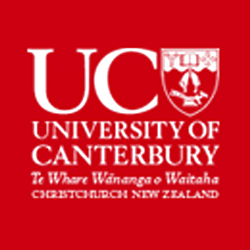
Investigation of initial teacher education student views of engineers and engineering practice
Status
Completed: 1 October 2020
Project Details
This one-year collaborative project by the University of Canterbury and University of Waikato sought to identify the attitudes and perceptions educators have regarding the typical character profile suited for engineering practice.
Aims:
This project formed the foundation for an intervention programme to assist teachers' awareness of the diversity required for a successful and internationally competitive engineering community.
There is a recognised lack of female, Māori and Pasifika participation in most engineering disciplines. Prior research infers that children aged 11-13 years reject careers in engineering due to the perceptions of key role-models such as teachers.
The research intended to highlight any false perceptions held by teachers who in-turn heavily influence student career choices, and ultimately has the potential to improve diversity in the engineering workforce.
Methodology:
The project used interviews and Likert-scale questionnaires to determine the perceptions of initial teacher education lecturers, and graduate diploma and bachelor initial teacher education students who plan to teach children aged 11-13.
The goal was to identify the attitudes and perceptions educators have regarding the typical character profile suited for engineering practice.
Team

Dr Paul Docherty
Project leader
University of Canterbury
Dr Wendy Fox-Turnbull
University of Waikato
Pinelopi Zaka
University of Canterbury
Tessa Impey
University of CanterburyStatus
Funding
$22,500.00 (excl GST)
Key Findings
- The qualitative results revealed quite limited and traditional views of engineers and engineering from the initial teacher education (ITE) students.
- The wide variety of different engineering roles has led to difficulty in creating a definition of engineering.
- In order for teachers to be able to inform their students’ career decisions, they must be able to grasp the essence of the careers that they might recommend.
- No student teachers reported knowledge of engineering practice received from a New Zealand education provider.
- The understanding of engineering that comes from family and friends was one of the best sources the interviewees had. However, this source gives different information to everyone and results in a large variation in understanding.
- Some interviewees had a reasonably accurate view of subsets of engineering practice, most interviewees had a very vague understanding, and some were ultimately incorrect.
- Aptitude for mathematics and sciences was generally accepted as being significantly more important than soft skills. Some interviewees even went as far as to state that communication skills are not important to engineering. To succeed as an engineer, communication skills are vital.
- There is very clear evidence that teachers have an influence on the career choice of students. Most student teachers implicitly recognised their role in preparing students for career choices as well as careers.
Key Recommendations
- Racism and racial bias in education should be utterly, and vehemently opposed.
- Increasing Māori participation in well paid professions, such as engineering, should be considered a critical element of the solution to the economic disparity observed and its knock-on effect to health and education. Hence, teachers and student teachers should be explicitly instructed in both their ability to achieve upwards social mobility in Māori and Pasifika, but also in how to empower all students, including those who may not be inspired into professional careers at home.
- It is important for student teachers to be provided with opportunities to reflect on unconscious bias, especially their own.
- Teachers must become versed in the general nature of engineering, and the primary and secondary subjects, attributes and dispositions that contribute to successful engineering practice.
- Society should challenge stereo-typical views and help mitigate the effects of harmful stereotypes that ultimately lead to prejudice in career recommendations. The engineering sector has a responsibility to showcase engineering in a way that attracts a wider diversity into engineering.
- Student teachers should be made aware of the considerable influence they will have on their students’ career aspirations and their students’ self-efficacy. In particular, for children with challenging backgrounds, or non-aspirational families, teachers may be the only influence capable of encouraging upwards social mobility.
- Female engineering role models should be introduced to student teachers.
- Any outreach that targets increased female participation in engineering should highlight the significant good that engineering can do for people and the climate, and also the need for strong communication skills in engineering practice.
This study contributes to understanding the gender imbalance in engineering by highlighting soon-to-be teachers’ views of the profession and the people who are working within it.
(PDF, 821 KB, 91-pages)
- 4 November 2020